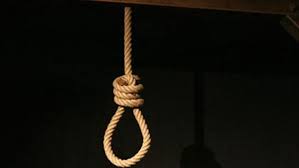The first apostasy(Ridda) trial in Sudan was held in 1968(1) prior to the provision for the offense itself in the fifth (2) Sudan Criminal and Penal Act of 1991- Article on apostasy (Article126: 1,2,3). Apostasy is Riddain Islamic jurisprudence and is punishable by ‘hadd’, which is a punishment fixed either by God in the Qur’an or in hadiths (traditions of the Prophet). The ‘hadd’ (punishment) of apostasy in Islam is death.
The politico-historical evolution of Sudanese criminal laws led to the emergence of laws having Sharia (Islamic Law) for a source and frame of reference in 1983. These laws were widely referred to as ‘September Laws’, which markedly changed both the philosophy and structure of laws by broadening their scope and extending the reach of physical and freedom-depriving penalties(3).
Historically, apostasy trials were linked to the political situation in the Sudan. In investigating the first case in 1968(4), it transpired that the defendant involved was the Jamhuris (Republicans) leader, Ustāz Mahmoud Mohammed Taha against whom a charge of apostasy was leveled. He was convicted and sentenced to death by an unspecialized court in the absence of a provision criminalizing apostasy in the applicable Sudanese laws in that time. The court predicated its verdict on what was known as ḥisbah (accountability) lawsuits(5). In 1985 a second apostasy trial was held for Ustāz Mahmoud Mohammed Taha before an incompetent, partial criminal court. The court convicted Taha of apostasy for the second time in the absence of a provision criminalizing apostasy predicating its verdict on Article (93) of the Criminal Code 1983 (waging war against the state) (6). He was sentenced to death and executed on 18th January 1985. Political motives were the backbone in both trials as the claimants in the first trial were affiliates of the Islamic Charter Front (7), the political organization which vehemently supported the declaration of Sharia laws in 1983. Mahmoud Mohammed Taha publicly criticized and opposed these laws; this was the real cause of subjecting him to the second trial in 1985.
Read full Report Here: Apostasy Punishment in Sudan 1968 – 2018
 African Centre for Justice and Peace Studies ACJPS | المركز الافريقي لدراسات العدالة و السلام
African Centre for Justice and Peace Studies ACJPS | المركز الافريقي لدراسات العدالة و السلام




